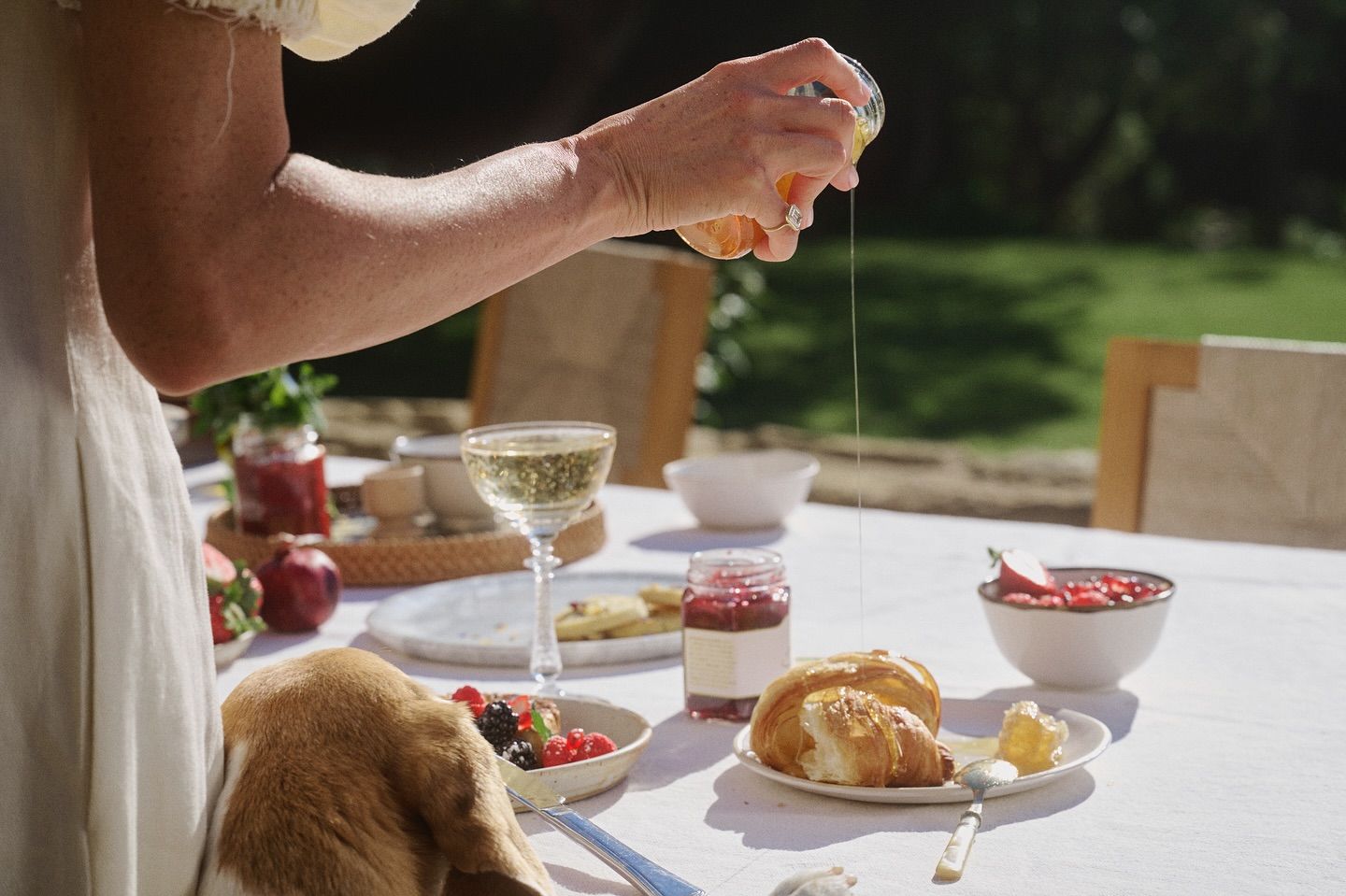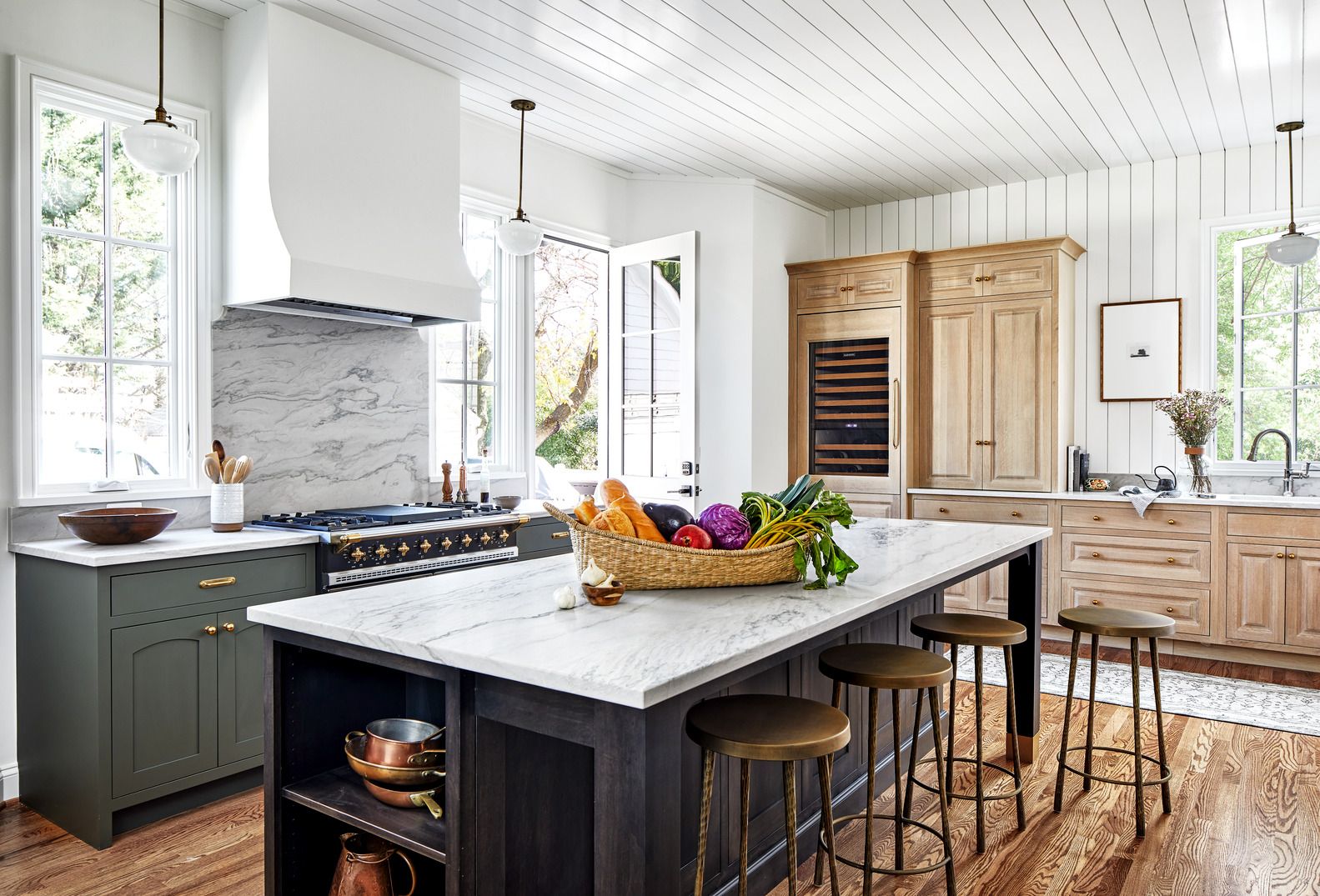www.housebeautiful.com
Jump to:Whether you're designing a brand-new kitchen or remodeling the one you already have, selecting the right countertop material is a key design choice. While there are various DIY options out there that you can install on a tighter budget, we say that it's highly preferable to invest in this home feature and opt for pro installation. Choosing a durable material for a lasting solution requires careful consideration. The options are vastgranite, concrete, marble, soapstonebut two standout favorites are quartz and quartzite. Despite their similar names, many homeowners have trouble telling the difference between quartz vs. quartzite, and this could lead to misunderstandings with your contractor if you're not careful.So, whats the difference between the two, and how do they look and function differently in your kitchen? We reached out to three expertsDilmohan Chadha of Integrated Resources Group, a family-owned stone supplier in San Francisco; Munir Turunc of the natural stone supplier Marble Systems; and Lori Shapiro of Caesarstone, which makes and distributes engineered stone surfacesto discuss everything to know about quartz vs. quartzite.Read on to learn more about the difference in appearance, durability, maintenance, cost, and lifespan of quartz vs. quartzite to help you confidently decide which material is the best fit for your kitchen.Related StoriesWhat Is Quartz?Quartz countertops are manmadeyou might hear quartz referred to as engineered stone. Quartz countertops are made by mixing crushed quartz with resin or plastic and pigments to create a slab of material with a uniform appearance, Turunc explains. So while natural materials make up about 90 percent of quartz countertops, the other 10 percent is artificial. What Is Quartzite?Miranda EstesA kitchen with quartzite countertops designed by Reena Ravi.Quartzite, on the other hand, is a 100-percent natural material. It comes straight from the earth. Quartzite begins as metamorphic sandstone that gets buried underground, according to Use Natural Stone. As time passes and the sandstone gets buried even deeper in the earth, it gets hotter and more compressed, causing the individual grains of sand to fuse together and form a dense rock. While quartzite is made almost entirely of mineral quartz, additional minerals can result in different colorings, making some slabs of quartzite lighter or darker or more varied in hue, which makes each piece unique.Related StoryAppearanceDont let the similar names deceive you: Quartz and quartzite countertops can look very different. Because quartzite is essentially plucked from the ground, you get what you getthe patterns are natures work, says Chadha, who has worked in the stone industry for nearly 40 years. Even if you buy two slabs of quartzite from the same quarry with the same color scheme, the patterns on them are going to look very different from each other. For that reason, its important to buy all of the quartzite you need for your kitchen at once to ensure it looks as consistent as possible (if thats important to you). Quartz countertops come in even more colors and patterns because quartz is an engineered stone. Being manmade, the patterns and the colors and all that are designed by the manufacturer, Chadha explains. In quartz, you will have consistency, meaning if I buy from some manufacturer today and then I go back to them in a month, the patterns will be pretty much the same with a difference of perhaps 1 percent or even less.Design PossibilitiesQuartzites patterns can look like stripes, swirls, or little brushes of mineral quartz, and they can appear more bold or light. Quartzite also comes in a variety of hues, from white, gray, and tan to green, pink, and blue. Basically, quartzite can hit a wide range of the color spectrum. Some of the lighter quartzite colors, such as Taj Mahal and Cristalino, have been very popular and are some of the best-selling natural stones," Turunc adds. Shapiro suggests going to your local distribution center in person to check out the quartzite slabs since each one is unique, even if you know what color you want to install.With quartz, the possibilities are practically endless. You can go to a quartz countertop manufacturer and tell them you want something that looks like another stone, and they can engineer the quartz to look like those other materials. Since quartz countertops are manufactured, they can be produced in a wide range of colors, patterns, and veining, including options that mimic the appearance of natural stone like marble and granite, Shapiro says. Quartz is engineered and offers more color and pattern options than quartzite, she adds. The only downside is it wont have the natural variation that makes natural stone uniqueand that may or may not matter to you. Related StoryDurabilityStacy Zarin GoldbergKitchen with quartzite countertops, designed by Alison Giese.Countertops get scratched, dented, scorched, and stained as you cook, so we asked Chadha about all the possibilities. Whether quartz or quartzite will be more durable in your kitchen depends on your cooking style and tolerance for imperfections. However, generally speaking, quartz countertops can be described as more durable than quartzite countertops due to the fact that the resin can make them almost more flexible. HardnessQuartz and quartzite are both pretty much scratch resistant, with quartz having a slight edge. Scratching in quartzite is basically unheard of, but that doesnt mean itll never happen, says Chadha.Stain-ResistanceQuartz countertops are more resistant to stains than quartzite. Natural stones like quartzite are more porous than engineered types of stone like quartz, which means theyre more susceptible to staining. Acidic substances like coffee, wine, and tomato sauce can stain. Thats why its important to have natural stones resealed annually for protection if a little discoloration bothers you. Still, Chadha makes sure to point out that quartz countertops are stain resistant, not stain proof. Heat-Resistance While both materials can handle a good amount of heat, quartz can resist only up to 250 degrees Fahrenheit. If you put a hot pan on it, it could burn, and you will not be able to repair it, Chadha says. This is one of the main disadvantages to quartz, Turunc adds. Quartzite, by contrast, is extremely heat resistant, able to go well past the 250-degree mark without ruining the appearance. It makes sense if you think about it, since the stone was formed under immense pressure and heat.Related StoryMaintenance NeedsAs we mentioned above, quartzite like other natural stones can be a very porous material. That means it does need more regular maintenance, especially if you care about keeping it looking pristine. ResealingSome quartzite is almost like glass and not porous at all, but it really depends on the slab you get, Chadha says. As a natural stone, the normal recommendation is to make sure you seal the product, he says. Once you do that, you take care of the porosity issue. You should have your quartzite counters resealed annually, especially if the quartzite is light in color. In addition to applying a sealant to help prevent future stains, a stone repair specialist can remove existing stains and etching and restore the shine to your counters. This can cost from a few hundred to more than a thousand dollars, depending on how much of the stone you have in your kitchen and its condition. Quartz, on the other hand, doesnt require any type of sealant or annual maintenance. If you ask us, thats one of its best perks. Daily CleaningMild soap and water are really the only things you should use to clean quartz or quartzite, Chadha says. Avoid using anything abrasive on either surface, especially quartzite, because you could affect the sealant. There are now specialty cleaners for both of them that can be used, he adds, but soap and water easily does the trick. Just dont let excess water sit on a quartzite countertop, especially if you have hard water where you live, since the minerals in it can cause etching.Related StoryCost DifferencesRight off the bat, Chadha, Turunc, and Shapiro agree that quartz is the cheaper countertop material. As a manmade material, quartz is more accessible and plentiful than quartzite; it can be manufactured to meet demand. Quartz countertops range in price, from inexpensive designs to luxury ones. Quartz can range from $55 to $90 per square foot, according to Arch City Granite.Quartzites the uniqueness and natural beauty automatically make it the more expensive countertop material. Its not as easy to come by as quartz since it has to be quarried, and where its sourced from can factor into the general cost. The lowest grade quartzite costs as much as luxury quartz. Quartzite can range from $90 to $150 per square foot, give or take, according to Arch City Granite. If youre looking for line items where you can save on cost in budgeting for your kitchen renovation, quartz is the way to goin terms of its upfront costs and maintenance costs. Of course, you could also choose to use quartzite in select areas of your kitchen, such as on the island, and a material thats less expensive, like granite or butcher block, in others to help balance the cost. Related StoryLifespanQuartz and quartzite have about the same lifespan, according to Chadha. However, natural quartzite does edge out quartz by a hair. With quartzite, if theres a little nick or something, it can be repaired. Meaning they can come in, put some epoxy, and repair it to look as good as new, he explains. To repair quartz is a little more difficult. Basically, matching the colors of the quartz might be a bit more difficult because the resins in it tend to discolor over time. Depending on how long youve had the countertop, it might be hard to match. Plus, the repair epoxy may not stick to quartz as well as it would to quartzite. Which Is Better: Quartz vs. Quartzite?Honestly, its all about what you want. Chadha always tells his customers that it depends on their budget and the style of kitchen theyre going for. If you want some uniqueness of character, then you go with the natural product, he says. Lets say you have Quartzite A in your kitchen, and I have Quartzite A in my kitchenboth of them will still be different. In quartz, it will be the same: If I go for Color A and you go for Color A, itll be the same.If you want something no one else has, budget for quartzite countertops. If youre fine having countertops that look like your neighbor's and dont want to spend too much, go with quartz. Theyre both great materials for your kitchen. Working on a design project? Let us help!Follow House Beautiful on Instagram and TikTok.












